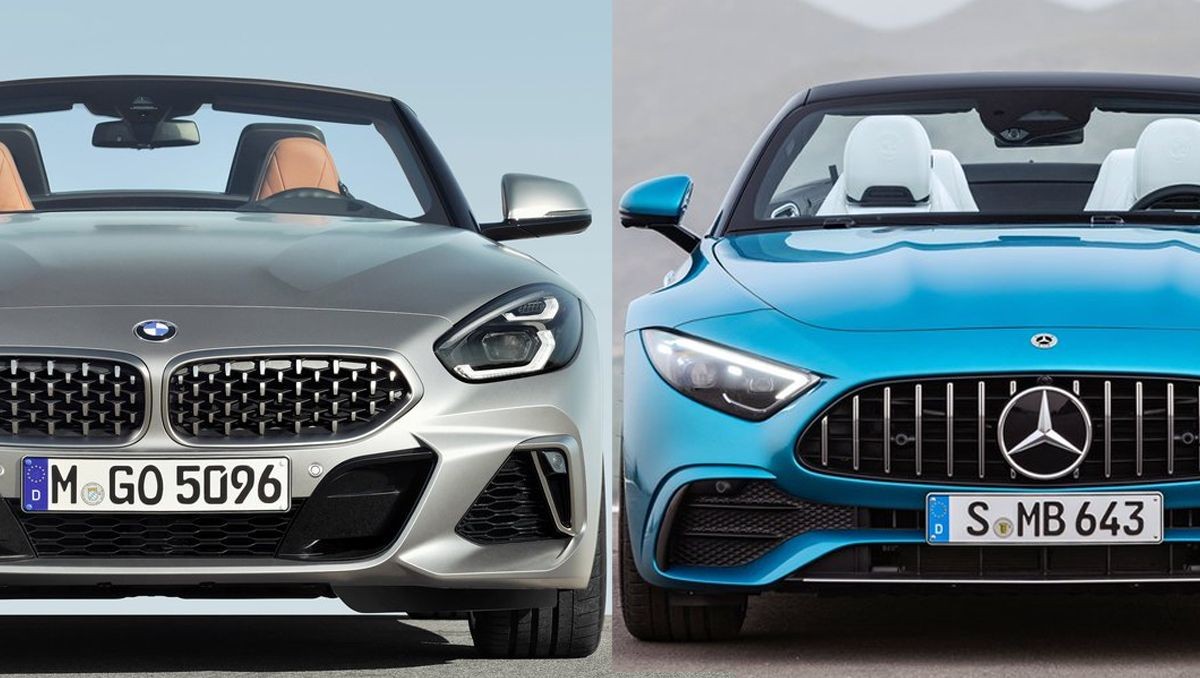Mercedes-Benz and BMW stand as titans in the luxury automotive world, renowned for their sophisticated engineering, premium comfort, and exhilarating driving dynamics. For discerning buyers, the choice between these German giants often boils down to more than just badge appeal. Beyond performance and prestige, a crucial factor in the ownership experience is long-term reliability. When considering a luxury vehicle, the question inevitably arises: is Mercedes-Benz or BMW more reliable?
Both brands promise an elevated driving experience, but the reality of ownership involves maintenance, repairs, and the potential for unexpected issues. While new vehicles come with warranties, the long-term costs and dependability are critical for informed decision-making. To navigate this complex landscape, we delve into reliability data from reputable sources like Consumer Reports, CarEdge, and J.D. Power, comparing maintenance costs and common problem areas to determine which brand truly holds the edge in reliability.
Mercedes-Benz and BMW: A Tale of Two Luxury Philosophies
Mercedes-Benz and BMW, while both German luxury brands, cultivate distinct brand identities. Mercedes-Benz traditionally emphasizes opulent comfort and refined luxury. Even entry-level models exude a sense of premium quality and sophisticated design. Stepping up the Mercedes-Benz hierarchy reveals increasing levels of lavishness, culminating in the flagship S-Class, a benchmark for automotive luxury worldwide.
BMW, on the other hand, has built its reputation on driving pleasure and sporty performance. While luxury is certainly present, BMW prioritizes an engaging driving experience. From the agile 3 Series to the powerful M models, BMW vehicles are designed to deliver dynamic handling and a connection to the road. This focus on sportiness is reflected in their design language, often characterized by more aggressive styling cues and driver-centric interiors. While Mercedes-Benz whispers luxury, BMW often shouts performance, even in its more understated models.
The Cost of Ownership: Maintenance and Repair Bills Compared
Luxury car ownership inherently comes with higher maintenance and repair costs compared to mainstream brands. However, the difference in expenses between luxury brands can be significant. Data from CarEdge suggests a notable disparity in long-term maintenance costs between BMW and Mercedes-Benz. Their analysis indicates that over a 10-year period, BMW owners can expect to spend significantly more on repairs than Mercedes-Benz owners – potentially thousands of dollars more.
CarEdge data further highlights that a nine-year-old BMW is projected to be more expensive to maintain than a twelve-year-old Mercedes-Benz. Furthermore, they estimate a higher probability of requiring a major repair for a BMW before its tenth year compared to a Mercedes-Benz of the same age. While both brands exceed the industry average for 10-year repair costs, BMW consistently emerges as the pricier option in terms of long-term maintenance and potential repairs. This difference can be a significant consideration for buyers concerned about the overall cost of ownership beyond the initial purchase price.
Reliability Ratings: J.D. Power vs. Consumer Reports
Assessing vehicle reliability involves considering various metrics and ranking systems. Two prominent sources for reliability data are J.D. Power and Consumer Reports, each employing different methodologies and focusing on slightly different aspects of vehicle dependability. J.D. Power rankings often focus on problems experienced per 100 vehicles (PP100) in the short-term, while Consumer Reports takes a more predictive approach, considering brand history and long-term owner surveys.
J.D. Power’s reliability rankings place BMW and Mercedes-Benz relatively close to each other. However, BMW generally ranks higher, indicating fewer reported problems per 100 vehicles. In their assessments, BMW typically positions higher than Mercedes-Benz, suggesting a slightly better initial ownership experience in terms of reported issues.
Consumer Reports, on the other hand, presents a more pronounced difference in reliability between the two brands. Their rankings often place BMW significantly higher than Mercedes-Benz. In some Consumer Reports studies, BMW has achieved top-tier reliability scores, while Mercedes-Benz has ranked much lower, sometimes even below average. This discrepancy highlights the different methodologies and potentially different long-term reliability experiences captured by these two leading rating agencies. While J.D. Power suggests a close race, Consumer Reports data often points towards BMW having a more consistent track record for predicted reliability.
Common Problem Areas: Engine and System Reliability
Both BMW and Mercedes-Benz, despite their reputations for engineering excellence, have experienced reliability issues with certain engine models and vehicle systems over the years. Understanding these common problem areas can be crucial for potential buyers, particularly when considering pre-owned vehicles.
BMW, for example, has faced scrutiny regarding certain engines like the N20 four-cylinder, particularly pre-2017 models. These engines have been associated with issues such as timing chain problems, oil leaks, and water pump failures. While newer BMW engines, like the B48 and B58, have addressed many of these concerns, potential buyers should be aware of the historical issues associated with earlier models.
Mercedes-Benz, while often perceived as exceptionally reliable, has also encountered its share of problems. Electrical system issues have been a recurring concern for Mercedes-Benz owners. Additionally, surprisingly, rust has emerged as a problem in some models, even leading to significant recalls. Air suspension systems, common in luxury vehicles, have also been a source of trouble for Mercedes-Benz, with airbag and compressor failures leading to costly repairs. Furthermore, some newer Mercedes-Benz models utilize engines sourced from Renault, raising questions about long-term reliability compared to Mercedes-Benz’s in-house developed engines.
Transmission Reliability: ZF for BMW, 9G-Tronic for Mercedes
The transmission is a critical component in any vehicle’s reliability equation. BMW and Mercedes-Benz take different approaches to transmission sourcing and manufacturing. BMW primarily utilizes transmissions from ZF, a reputable German manufacturer, and integrates its own software for optimal performance. However, a common issue with BMW transmissions is often related to maintenance neglect. Many owners fail to adhere to recommended transmission fluid change intervals, leading to premature wear and potential failures, often manifesting around the 120,000-mile mark.
Mercedes-Benz, in contrast, designs and manufactures its own 9G-Tronic transmissions. While early versions of the 9G-Tronic, introduced around 2013, experienced some teething problems, Mercedes-Benz addressed these issues by 2016. Post-2016 9G-Tronic transmissions are generally considered reliable. The in-house production of transmissions gives Mercedes-Benz greater control over quality and integration, potentially contributing to the overall reliability of this critical component.
Conclusion: Weighing Reliability and the Luxury Experience
So, is Mercedes-Benz or BMW more reliable? Based on available data, the answer is nuanced. While both brands occupy the luxury segment and exceed industry average repair costs, Mercedes-Benz appears to have a slight edge in long-term maintenance expenses. Reliability rankings vary depending on the source, with J.D. Power suggesting a close contest and Consumer Reports often favoring BMW more significantly.
Ultimately, both Mercedes-Benz and BMW offer compelling luxury vehicles with distinct strengths. Choosing between them involves weighing individual priorities. If long-term reliability and lower maintenance costs are paramount, Mercedes-Benz may present a slightly more appealing proposition. However, BMW’s strong reliability ratings from Consumer Reports and its focus on driving dynamics remain significant draws. Prospective buyers should conduct thorough research on specific models, considering engine types, model years, and maintenance history, alongside consulting reliability resources to make an informed decision that aligns with their individual needs and preferences.

